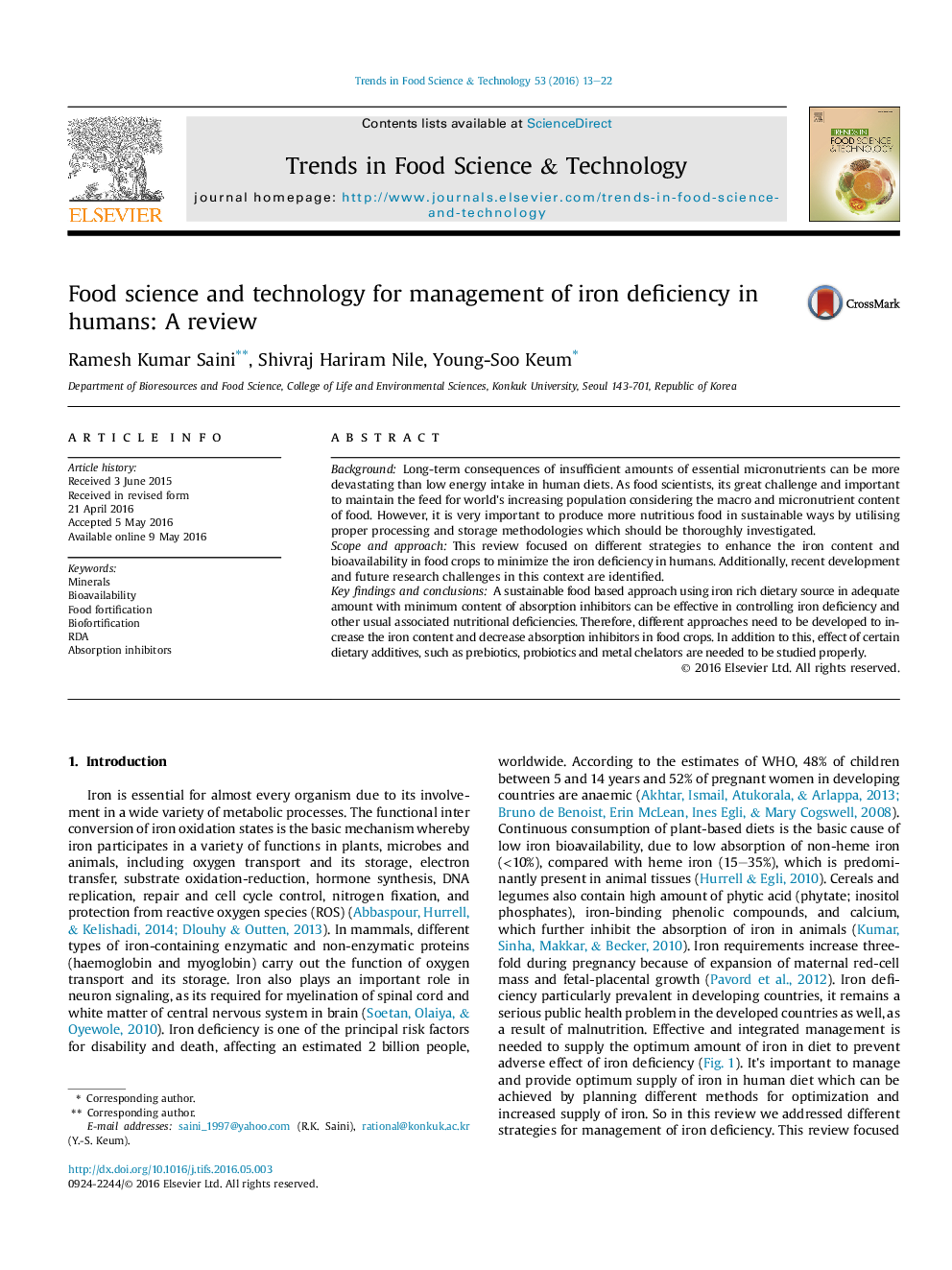| Article ID | Journal | Published Year | Pages | File Type |
|---|---|---|---|---|
| 2098435 | Trends in Food Science & Technology | 2016 | 10 Pages |
•Consequences of mineral deficiencies can be more devastating than low energy intake.•The soil–plant system is the chief contributory factor to human mineral nutrition.•Sustainable food based approach can be most effective in controlling iron deficiency.•Approaches need to be developed to decrease absorption inhibitors in food crops.•Metal chelators are highly beneficial to improve the iron bioavailability.
BackgroundLong-term consequences of insufficient amounts of essential micronutrients can be more devastating than low energy intake in human diets. As food scientists, its great challenge and important to maintain the feed for world's increasing population considering the macro and micronutrient content of food. However, it is very important to produce more nutritious food in sustainable ways by utilising proper processing and storage methodologies which should be thoroughly investigated.Scope and approachThis review focused on different strategies to enhance the iron content and bioavailability in food crops to minimize the iron deficiency in humans. Additionally, recent development and future research challenges in this context are identified.Key findings and conclusionsA sustainable food based approach using iron rich dietary source in adequate amount with minimum content of absorption inhibitors can be effective in controlling iron deficiency and other usual associated nutritional deficiencies. Therefore, different approaches need to be developed to increase the iron content and decrease absorption inhibitors in food crops. In addition to this, effect of certain dietary additives, such as prebiotics, probiotics and metal chelators are needed to be studied properly.
